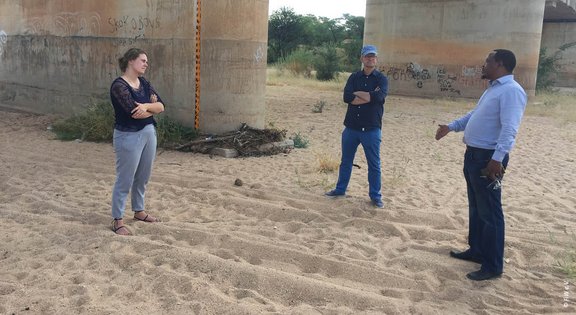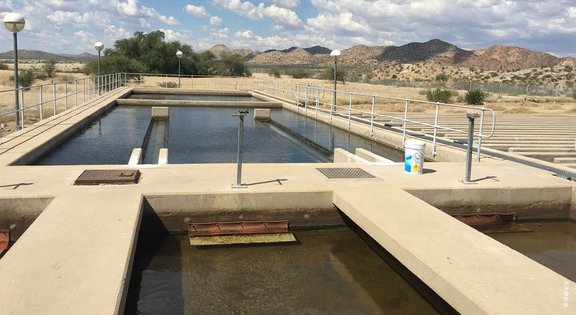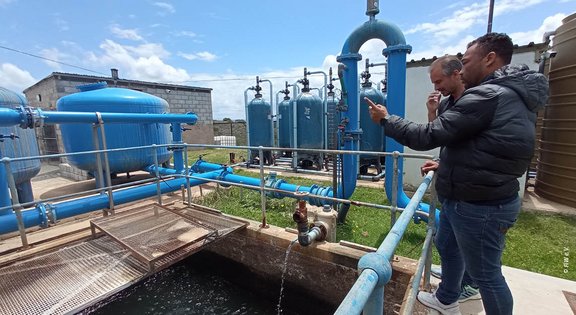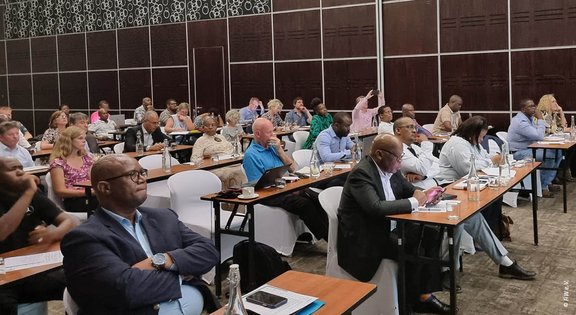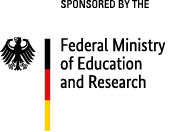Promising initial phases to increase Water security in Namibia and South Africa success-fully completed
Within the framework of the funding guideline "Water Security in Africa - WASA" of the German Federal Ministry of Education and Research (BMBF), the Research Institute for Water Management and Climate Future (FiW) has assessed water supply and quality situations in several pilot regions in Namibia and South Africa. Together with local stakeholders, potential strategies and measures to ensure adequate water supply in the long term were researched. Subsequent research projects should now investigate assessments of individual potentials and implementation options.
The challenges to water security in southern Africa are immense, and potential solutions differ fundamentally depending on the region and available water resources. In the city of East London in South Africa's Eastern Cape, for example, water supply to industry plays a crucial role, but securing it is increasingly problematic as a result of climatic changes and aging water supply infrastructure. Similarly, the Kouga region further west has already been experiencing intense drought since 2015, forcing the local administration to introduce water conservation measures for the private sector as well as agricultural sector. As part of the ECWASA initial phase, FiW, in collaboration with the Institute for Water Research (IWR) of Rhodes University, brought together various stakeholders in the region to collaborate on solutions to increase water security. The conference brought together a diverse coalition of businesses, industry, municipalities, research institutions, administrations, service providers, development organizations, and water utilities from Germany and South Africa, and provided an animated exchange of the respective challenges, but also solution strategies. The ECWASA project consortium also took the opportunity to show the 70 participants the potential of research that can contribute to the long-term security of water supply. More information on the ECWASA Springboard-Conference is also available here.
In Namibia, FiW was active in another initial phase in the Erongo Basin region, working with Namibian and German partners to identify possibilities to improve the water and sanitation infrastructure in the region, which is characterized by severe water scarcity Through the intensive cooperation of the stakeholders during the past year, it has already been possible to develop regionally specific strategies whose goals are secure access to water as well as sustainable use of the scarce water resource. In addition to measures to reduce water losses, the concepts also include measures to upgrade existing wastewater facilities and steps towards water reuse, the design and implementation which can now be taken up in a subsequent research project.
FiW would like to thank the German Federal Ministry of Education and Research for funding the ECWASA as well as the MultiReWaS project within the initial phase of the "Water Security in Africa – WASA" program.





